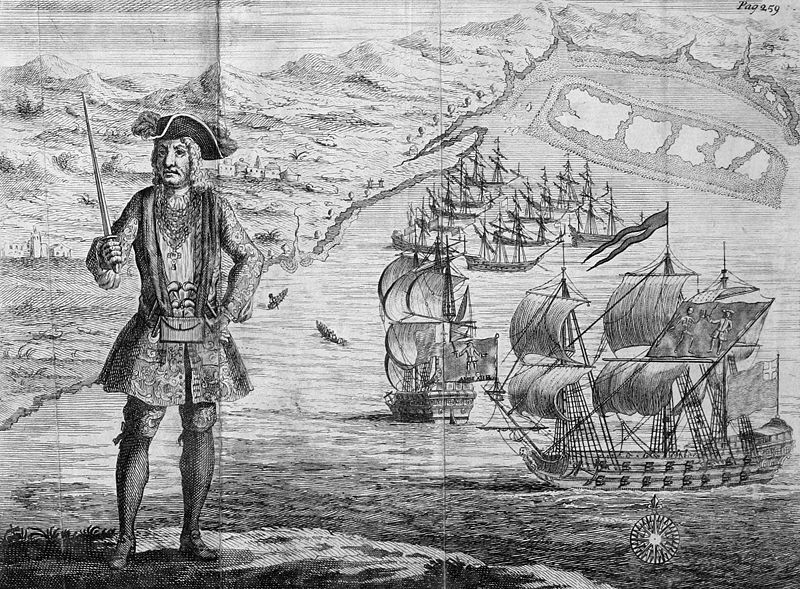
Articles observed by the crew of Welsh pirate Bartholomew Roberts (1682-1722):
- Every man has a vote in affairs of moment; has equal title to the fresh provisions, or strong liquors, at any time seized, and may use them at pleasure, unless a scarcity makes it necessary, for the good of all, to vote a retrenchment.
- Every man to be called fairly in turn, by list, on board of prizes because, (over and above their proper share) they were on these occasions allowed a shift of clothes: but if they defrauded the company to the value of a dollar in plate, jewels, or money, marooning was their punishment.
- No person to game at cards or dice for money.
- The lights and candles to be put out at eight o’clock at night: if any of the crew, after that hour still remained inclined for drinking, they were to do it on the open deck.
- To keep their piece, pistols, and cutlass clean and fit for service.
- No boy or woman to be allowed amongst them. If any man were to be found seducing any of the latter sex, and carried her to sea, disguised, he was to suffer death.
- To desert the ship or their quarters in battle, was punished with death or marooning.
- No striking one another on board, but every man’s quarrels to be ended on shore, at sword and pistol.
- No man to talk of breaking up their way of living, till each had shared £1,000. If in order to do this, any man should lose a limb, or become a cripple in their service, he was to have 800 dollars, out of the public stock, and for lesser hurts, proportionately.
- The captain and quartermaster to receive two shares of a prize: the master, boatswain, and gunner, one share and a half, and other officers one and a quarter.
- The musicians to have rest on the Sabbath Day, but the other six days and nights, none without special favour.
That’s from Charles Johnson’s A General History of the Pyrates (1724), via naval historian David Cordingly’s Under the Black Flag (1995). In the early years of the 18th century, Cordingly writes, a pirate captain “had absolute power in battle and when ‘fighting, chasing, or being chased,’ but in all other matters he was governed by the majority wishes of the crew.”
